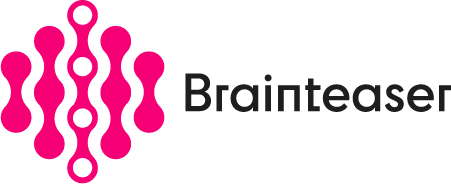iDPP CLEF Workshop – 11 & 12 September 2024
Agenda
Plenary Lab Overview (20 mins) – Wednesday 11 September 2024, 11:15-12:45 CEST
Session 1 (90 mins) – Thursday 12th September 2024, 11:15-12:45 CEST
Welcome and Introduction (5 mins)
Overview of the Lab (20 mins, including questions)
Participant Presentations (20 mins, including questions)
Lunch Break, 12:45-14:00 CEST
Session 2 (90 mins) – Thursday 12th September 2024, 14:00-15:30 CEST
Participant Presentations (20 mins, including questions)
Discussion and closing (5 mins)
Motivation
Important dates
- Registration closes: April 22, 2024
- Runs submission deadline: May 6, 2024
- Evaluation results out: May 20, 2024
- Participant and position paper submission deadline: May 31, 2024
- Notification of acceptance for participant and position papers: June 24, 2024
- Camera-ready participant papers submission: July 8, 2024
- iDPP CLEF Workshop: September 9-12, 2024 during the CLEF Conference
The goal of iDPP@CLEF is to design and develop an evaluation infrastructure for AI algorithms able to:
Better describe disease mechanisms.
Stratify patients according to their phenotype assessed all over the disease evolution.
Predict disease progression in a probabilistic, time dependent fashion.
Tasks
Overall iDPP is targeting two kinds of activities: (a) tasks on disease progression prediction; (b) position papers on the impact of the exposure to pollutants on the prediction algorithms. Overall, this mix will provide participants with the opportunity to make some hands-on experience with these data and provide feedback about the task design as well as to brainstorm on how to evaluate this kind of algorithms and, in particular, assess their explainability.
In this iteration of iDPP@CLEF we will focus on MS for the prediction tasks and on ALS for the position papers task.
In particular, we offer the following activities:
Task 1 – Predicting ALSFRS-R score from sensor data (ALS)
It will focus on predicting the ALSFRS-R score (ALS Functional Rating Scale – Revised), assigned by medical doctors roughly every three months, from the sensor data collected via the app.
The ALSFRS-R score is a somehow “subjective” evaluation performed by a medical doctor and this task will help in answering a currently open question in the research community, i.e. whether it could be derived from objective factors
Task 2 – Predicting patient self-assessment score from sensor (ALS)
It will focus on predicting the self-assessment score assigned by patients from the sensor data collected via the app.
If the self-assessment performed by patients, more frequently than the assessment performed by medical doctors every three months or so, can be reliably predicted by sensor and app data, we can imagine a proactive application which, monitoring the sensor data, alerts the patient if an assessment is needed.
Task 3 – Predicting relapses from EDDS sub-scores and environmental data (MS)
It will focus on predicting a relapse using environmental data and EDSS (Expanded Disability Status Scale) sub-scores.
This task will allow us to assess if exposure to different pollutants is a useful variable in predicting a relapse.
Information on the Datasets
Organizers
- Helena Aidos, University of Lisbon, Portugal
- Roberto Bergamaschi, University of Pavia, Italy
- Paola Cavalla, “Città della Salute e della Scienza”, Turin, Italy
- Adriano Chio’, University of Turin, Italy
- Arianna Dagliati, University of Pavia, Italy
- Barbara Di Camillo, University of Padua, Italy
- Mamede Alves de Carvalho, University of Lisbon, Portugal
- Nicola Ferro, University of Padua, Italy
- Piero Fariselli, University of Turin, Italy
- Jose Manuel García Dominguez, Gregorio Marañon Hospital in Madrid, Spain
- Sara C. Madeira, University of Lisbon, Italy
- Eleonora Tavazzi, IRCCS Foundation C. Mondino in Pavia, Italy


